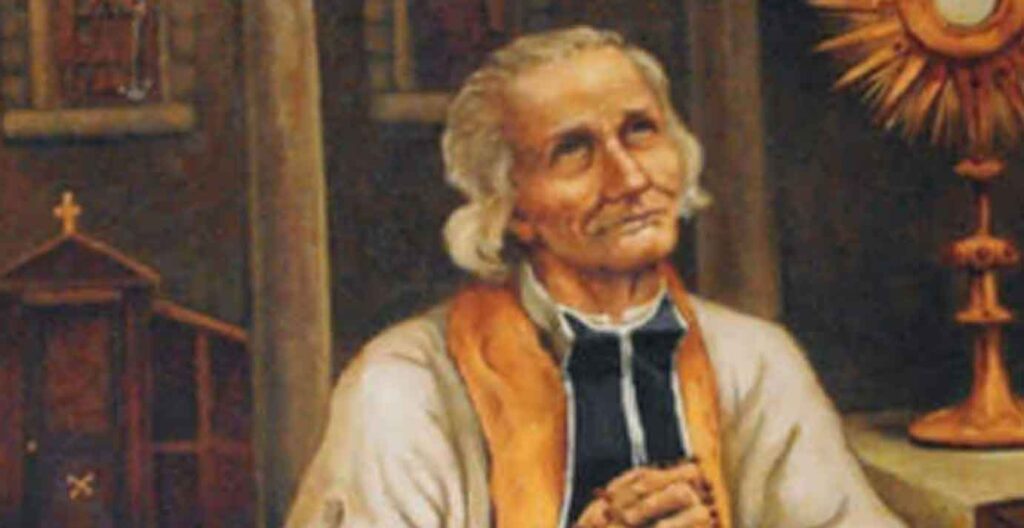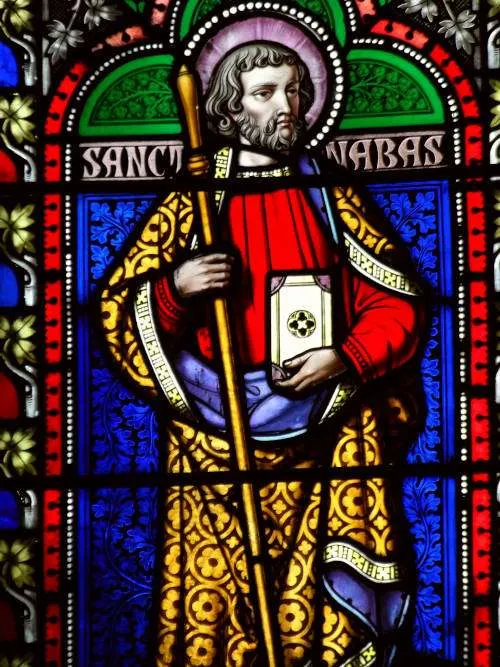Patron Saint of attorneys, captives, shoemakers, lions, notaries, glass workers, Egypt, and Venice; Invoked against impenitence, insect bites, scrofulous & struma diseases; Pre-Congregation canonization
Though little is known for certain about Saint Mark’s life, the Gospel attributed to him is unquestionably one of the most important scripts ever written. In a nearly breathless way, Mark recounts Jesus’ public ministry in concise and vivid detail. The shortest of the four Gospels is packed with information. Mark’s Gospel was most likely written primarily for Roman Gentiles, rather than for Jews, which is why he often describes various Jewish customs to the reader.
The Acts of the Apostles and various Epistles speak of “Mark” as well as “John Mark.” Most scholars believe that Mark and John Mark are the same person and the Gospel writer. Saint Mark is believed to have been born in Cyrenaica, modern-day Libya, which was under Roman rule at the time. “John” is his Jewish name, and “Mark” his Roman name. His father might have died when he was young, and his mother, named Mary, most likely moved with Mark to Jerusalem. His mother’s home might have been the location of the Last Supper and also the place where Peter went after the angel released him from prison. “When he realized this, he went to the house of Mary, the mother of John who is called Mark, where there were many people gathered in prayer” (Acts 12:12). As a teenager, Mark might have been nearby when Jesus was arrested. “Now a young man followed him wearing nothing but a linen cloth about his body. They seized him, but he left the cloth behind and ran off naked” (Mark 14:51–52). Many scholars believe that this young man is Mark. Saint Barnabas, the missionary companion of Saint Paul, was either Mark’s cousin or uncle (See Colossians 4:10).
Shortly after Peter escaped from prison and arrived at Mark’s home, Mark traveled north to Antioch in Syria with Barnabas and Paul. From Antioch, he accompanied Barnabas and Paul on a missionary journey to another Antioch in Pisidia, modern-day Turkey. Before completing their journey, Mark left Paul and Barnabas and returned to Jerusalem. It is unclear why Mark left, but Paul was not pleased and saw his departure as Mark abandoning them. Later, when Paul and Barnabas were going to set out on another missionary journey, Barnabas wanted to take Mark with them. Paul was so opposed to the idea that Barnabas and Paul went their separate ways (see Acts 15:37–40). Barnabas took Mark with him to Cyprus, and Paul took another companion with him through Syria and Cilicia.
Mark appears to have been close to the Apostle Peter, because Peter refers to him as “Mark, my son” (1 Peter 5:13) in a letter addressed to several Christian communities. Peter sent greetings to them all from Mark, indicating that Mark was also well known to those communities. That letter from Peter was most likely written from Rome where Peter would later be martyred. It might be that, while Mark was with Peter in Rome, he wrote his Gospel at Peter’s request, basing it on Peter’s preaching.
Though Saint Paul and Mark initially had a difficult relationship as a result of Mark’s early departure from Paul and Barnabas’ missionary journey, they became close toward the end of Paul’s life. Paul refers to him affectionately in a few letters he wrote from prison, calling him his co-worker and indicating that Mark had been very helpful to him (see Philemon 1:24; Colossians 4:10–11; 2 Timothy 4:11).
According to later traditions, Mark was ordained a bishop and sent to Alexandria, Egypt, to preach the Gospel (that he himself wrote) and establish the first Church in Africa. He is therefore considered the first bishop of Alexandria. In Alexandria, Mark encountered the wrath of the local Alexandrians and was martyred after almost twenty years of ministering to them. In the eighth century, Saint Bede describes Mark’s death in this way:
Afterwards, being arrested for the faith, he was bound, dragged over stones and endured great afflictions. Finally he was confined to prison, where, being comforted by the visit of an angel, and even by an apparition of our Lord himself, he was called to the heavenly kingdom in the eighth year of the reign of Nero.
As a child, Saint Mark could never have imagined what would become of his life. Not only did he come to know the Messiah as a youth, he later became a bishop and the first to bring the Gospel to the continent of Africa. Most importantly, he became one of God’s most powerful evangelists by faithfully writing down the life of Christ for others to read. Since that time, countless people have read his words, meditated on their meaning, been converted in the depths of their hearts, and given their lives over to Christ.
Ponder the significance of this one man. It appears he began his life fearful of his mission. He ran when Jesus was arrested, left Barnabas and Paul on their missionary journey, but he didn’t give up. He turned back to the mission and ultimately died a martyr, bestowing on us one of the greatest treasures ever given. If you feel regret at any failure, or even numerous failures in your life, take inspiration from Saint Mark. Failures can be remedied. Recommit yourself to God’s mission, and know that, if you do, God will use you in unimaginable ways.
Source: https://mycatholic.life/saints/saints-of-the-liturgical-year/april-25—saint-mark-the-evangelist/







